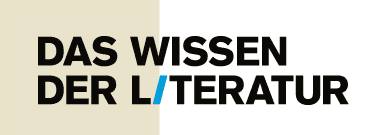Curriculum
The structured curriculum ranges from seminars to workshops and methodological training. The study program consists of five basic units: a colloquium, seminars, workshops and working groups, a qualification service, and project-specific events. The courses taught and the topics explored vary according to key subjects for each year: »Knowledge and Symbolic Form« (1st year), »Science & Fiction« (2nd year), and »History and Theory of Curiosity« (3rd year). In addition, the Humboldt Graduate School offers a general training and qualification service which provides rhetorical and scientific writing skills as well as career guidance and management.
Course Units
The colloquium represents the key unit within the curriculum. The unit will be supervised by the relevant professor in charge of the PhD-program. The colloquium will give all PhD-candidates the opportunity to present their research projects. The unit is designed as a platform for open discussions and exchanging ideas.
The seminars will be led by the academic staff of the faculty. Aiming to establish a common ground for all students enrolled in the PhD-Net, the seminars will include close readings on theoretical and methodological texts as well as discussions on current academic debates and new publications concerning the »Wissen« of literature.
One or two day workshops, designed and organized by the advisors in close co-operation with the PhD-students, focus on particular aspects of the individual research profile. These workshops will allow students to form self-organized study and working groups.
A qualification service for all PhD-students funded by the Humboldt Graduate School (HGS) includes technical and practical support regarding the process of long-time research projects. Students will be offered scientific soft skills courses (e.g. scientific writing, grant-application writing, and high-performance presentation), mentoring, and career counseling as well as courses to improve data processing skills. The School closely collaborates with non-university experts who will help the students discover professional opportunities for literary scholars on the job market.
The project-specific events cover a wide range of special events concerning the three focuses of research that characterize the PhD-program (see above.). The events support the intellectual exchange between the academic co-operation partners of the PhD-Net. The results of the latest research will be presented within the scope of lecture series, summer schools and post-graduate conferences.
Research Collaboration
The PhD-Net collaborates closely with the Department of German at the University of California, Berkeley, the Department of German at Princeton University, and the Department of Germanic Languages and Literatures at Harvard University. Furthermore, the Max-Planck-Institut für Wissenschaftsgeschichte (MPIWG) and the Zentrum für Literatur- und Kulturforschung (ZfL) Berlin are affiliated to the program as research partners.
Facilities
The PhD-Net is hosted by the Institut für deutsche Literatur at Humboldt-Universität zu Berlin and located in close proximity to the main campus of Humboldt-Universität. Facilities at the host institution include office space for faculty and staff as well as seminar rooms and equipment. The Humboldt Graduate School provides offices for the doctoral students, including computer facilities.
« top of page

